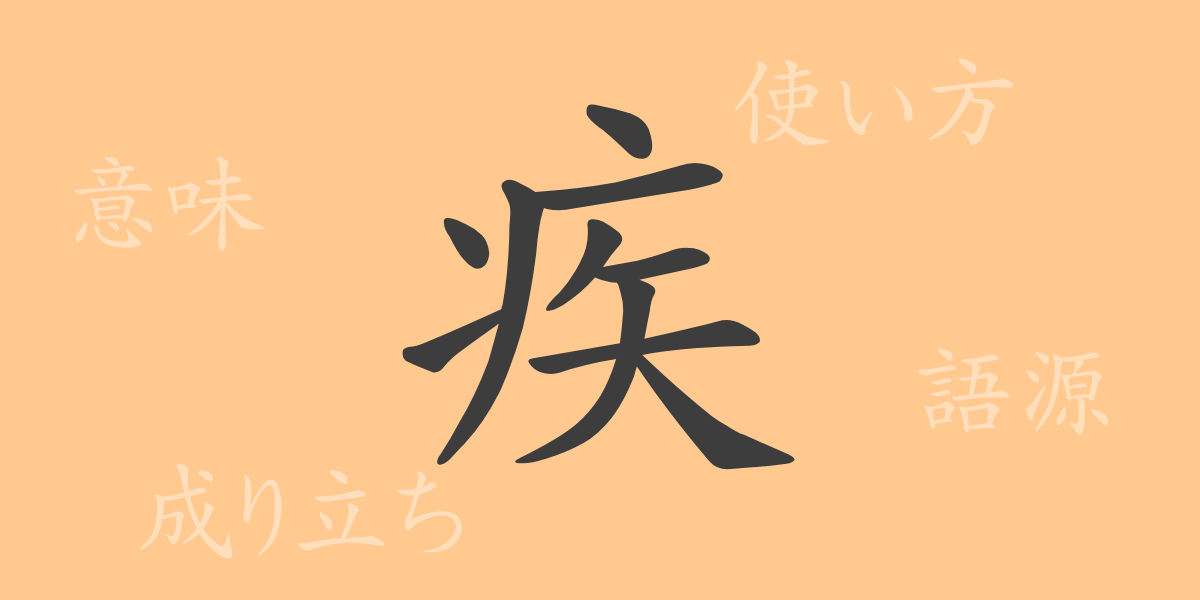Japanese has numerous kanji characters, each imbued with its unique history and meaning. In this article, we focus on the common kanji “疾(しつ).” This character is frequently seen in daily life, but we delve into its origins, meanings, usages, and even the idioms and expressions it forms to explore its deep allure.
Origins of 疾 (Etymology)
The kanji “疾(しつ)” traces its origins back to ancient China. It is composed of two elements: “病(やまい)” which signifies illness or pain, and “矢(や)” which represents speed. This combination originally conveyed the idea of “a rapidly progressing illness,” from which the meaning “fast” was derived.
Meanings and Usage of 疾
The kanji “疾(しつ)” is primarily used to denote “fast,” but it can also imply “illness.” It appears in contexts such as “疾走(しっそう)” and “疾風(しっぷう),” which describe “fast movement.” Additionally, it is used in terms like “疾病(しっぺい)” to denote “disease.”
Readings, Stroke Count, and Radical of 疾
The kanji “疾(しつ)” has several readings and structural details that vary based on usage.
- Readings: The on’yomi (音読み) is “シツ,” and the kun’yomi (訓読み) is “とく.”
- Stroke count: 10 strokes.
- Radical: The radical is 疒(やまいだれ).
Idioms, Phrases, and Proverbs Using 疾
There are numerous idioms, phrases, and proverbs in Japanese that include the kanji “疾(しつ).” Here are a few examples:
- 疾風迅雷(しっぷうじんらい): Extremely fast. This expression evokes the image of a fierce wind and rapid thunder.
- 疾病(しっぺい): Disease, often referring to severe acute illnesses.
- 疾走(しっそう): Running quickly, often used in sports contexts to describe fast running.
- 疾風怒濤(しっぷうどとう): Violent wind and waves, describing a situation with rapid and intense changes.
- 疾くに(とくに): Quickly, immediately. Used in kun’yomi reading.
Conclusion on 疾
The kanji “疾(しつ)” symbolizes speed and acuteness in both its form and meaning. Its usage in Japanese spans from literal fast movement to metaphorical expressions, showcasing the depth of the language. Through this article, we hope to deepen your understanding of “疾(しつ)” and help you appreciate the richness of Japanese expressions even more.

























